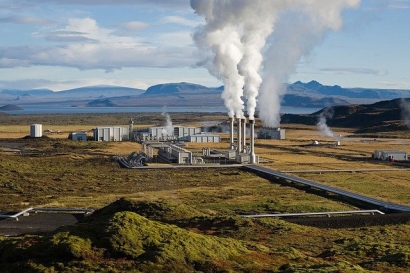
The Texas energy sector has benefitted tremendously from a diversified energy portfolio that has included oil, natural gas, wind, solar, coal, and nuclear power. In addition to these resources, Texas has the opportunity to develop undeveloped geothermal resources in the near-term to decarbonize residential and industrial heating and cooling and produce reliable and secure baseload electricity.
Barry Smitherman, a past chairman of the Public Utility Commission of Texas (PUCT) and a past chairman of the Texas Railroad Commission, is guiding the formation of TxGEA. Smitherman added, “The rise of geothermal energy is coming at a pivotal time in Texas. The technological advances, coupled with energy market incentives and a supportive legislative and regulatory framework, will unleash tremendous geothermal energy potential, as well as position Texas as the global epicenter of next-generation geothermal innovation.”
Jamie Beard, executive director of the Geothermal Entrepreneurship Organization (GEO) at the University of Texas at Austin, said, “Paradigm shifting technology advancements within the oil and gas industry over the past decade, along with a significant increase in the number of oil and gas professionals engaged in geothermal ventures today have enabled a new realm of possibilities to advance scalable geothermal concepts.”
Cindy Taff, COO of Sage Geosystems and a 36-year oil industry veteran, said, “The intellectual capital of the oil and gas industry will provide a pivotal advantage for rapid geothermal industry growth and scale. In turn, geothermal resource development will provide new opportunities for the Texas oil and gas sector, leveraging core competencies while developing a virtually inexhaustible clean energy resource in the state.”
Besides providing heating and cooling directly to industrial and residential consumers, geothermal power is a renewable energy source that offers firm and flexible solutions to a changing power system. Geothermal provides a range of services, including baseload, regulation, load following or energy imbalance, spinning reserve, non-spinning reserve, and replacement or supplemental reserve.
Geothermal plants can operate 24 hours a day with a steady output, regardless of environmental conditions, and are not subject to the unpredictability and voltage swings that variable energy resources face. Geothermal plants can also ramp up or down quickly, allowing them to adjust to the changing needs of the power system and act as a flexible power source in addition to baseload.
Funded by the Austin-based Cynthia and George Mitchell Foundation, a forthcoming study will inform TxGEA’s mission. ‘Future of Geothermal in Texas,’ a robust, cross-state, multi-institution initiative, will provide a roadmap for future progress for geothermal in the Lone Star State. The study will publish in spring 2022.
The following companies and organizations support the increased development of geothermal power in Texas with the goal of the Texas Geothermal Energy Alliance acting as the voice for the industry:
(Partial listing as of January 13, 2022)

